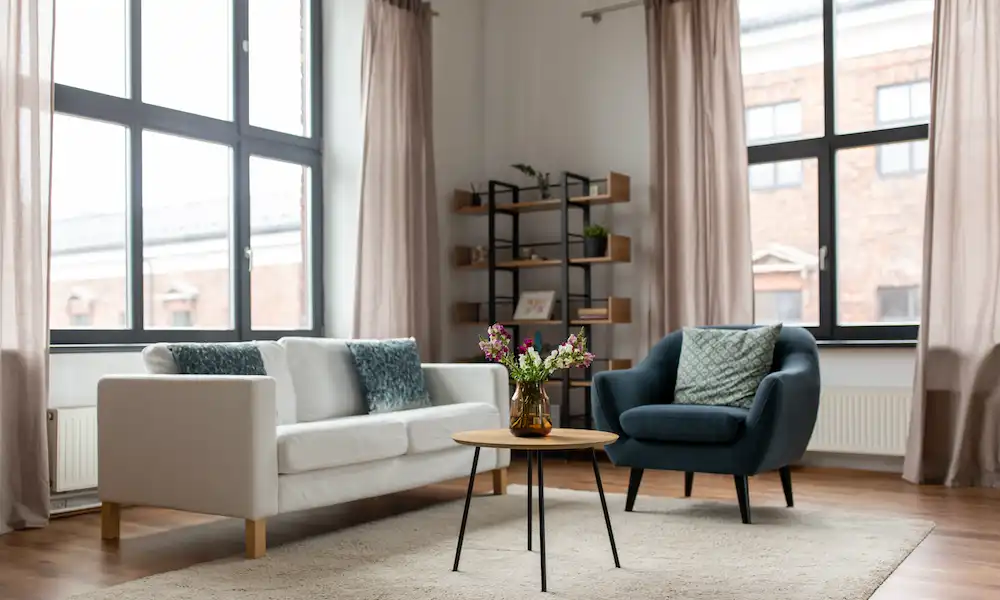Buy
15 Essential Things All Property Buyers Need To Think About

Whether you’re a first-time buyer or a seasoned investor, it’s crucial to approach property purchases with the same level of thoroughness each time.
Property buying should be carefully considered, as numerous factors influence your choice.
Before purchasing a property, it is crucial to consider these 15 essential factors, regardless of whether you are buying in Europe, the UK, the USA, or any other location.
1. What influences your choice of home?
Don’t let the initial dazzle of a property blind you; it’s crucial to consider the long-term implications.
Family
Have you considered your plans, such as having children or possibly caring for elderly family members?
Additionally, it’s essential to consider any known potential changes in your situation in the coming years.
For example, you may be moving to a new area or country like Switzerland for your career. Knowing approximately when a big move like this may happen will influence your choice of home now.
Resale
You’ll also want to consider the resale value of your home, particularly if you plan on selling it within seven years.
Location
For example, location is one of the top priorities for homebuyers. Choose a property that is in a good area.
Consider the implications of owning a property around unpopular schools or busy streets. It will be harder to sell as there’s every chance that people with kids or those planning to have them won’t bother looking at your home.
Realtors have lists of the best properties for sale, like the best location guides for condos. This way, you can take a lot of the hard work out of choosing a property, although you’ll still need to go and see your options in person and make sure they’re right for you!
2. Making A List Of Things To Check
Before looking at properties, list everything you want in a home and prioritize each item.
This action will remove the emotion from the decision so you get the best home for your needs. Without a list, you will forget the homes you’ve viewed and how they stacked up to your requirements.
Some homebuyers will view hundreds of properties before purchasing, and this action is often due to a lack of measurement.
3. Look At Every Expense When Budgeting
Buying a home in a country like Switzerland will rely primarily on what you can afford – i.e., your budget.
When budgeting for your new place, make sure you look at every expense. For example if you’re going to be buying a property in Romania You need to ensure you’ve considered everything so there are no nasty surprises and that you can truly afford this property.
For example, are you aware of the following expenses you must budget?
- The Down Payment (Deposit) is a percentage of the home’s purchase price. Start with saving the deposit and aim for 20% of the purchase price.
- Settlement (closing) costs are fees associated with finalizing the real estate transaction and can include costs for the loan origination, appraisal, title insurance, attorney fees, and more. Closing costs typically range from 2% to 5% of the home’s purchase price.
- Property Taxes – Depending on when property taxes are due, including property transfer tax if you’re buying in a country like France or Switzerland. Additionally, you may need to reimburse the seller for taxes paid in advance. Property tax rates vary by location.
Budgeting carefully and being aware of potential expenses is essential to avoid any surprises during home-buying.
Remember that these costs can vary based on location, the price of the home, and other factors. Consulting with a real estate professional and a financial advisor can help you better understand the specific costs associated with your home purchase.
4. Read A Contract All The Way Through
If you are given a contract, don’t just sign it without reading it. You’re probably a busy person, but skipping out chunks of the agreement could leave you in big trouble.
If you haven’t got time to read through the contract, get somebody else to do it for you with a fine-toothed comb – like an assistant or even a legal professional- to ensure you won’t get stung. For example, a real estate agency in Cyprus will give you a contract vastly different from what you’d expect from a realtor in London. You will need a property lawyer with local knowledge of the property transactions law to review the real estate agreement before signing it.
5. Don’t Get Sucked In By The View
Unless you own the land between your home and the view, do not get sucked in by it and buy for the idea. Any number of things can happen to ruin the picture.
People have lived in properties for merely a year, only to find out that the view will have houses built on it, and there is nothing they can do. Ensure you love the property and see the view as a bonus.
6. Save Up As Much Of A Down Payment As Possible
As mentioned earlier, your downpayment deposit can never be too large.
Saving 20% is the recommended amount, and your mortgage payments should be manageable this way. You may be able to get by when you keep a smaller down payment, but there are too many benefits to owning a bigger one.
7. Get Your Credit Into Tip Top Shape
If you haven’t done this already, getting your credit in better shape will leave you in a better position to buy a house.
You’ll get better mortgage/interest rates, and it’s easier to take out credit if you need it for anything else. Make sure your debts are paid off, that you pay your bills on time, and that there are no mistakes on your credit report, as they can seriously hinder you, and it won’t even be your fault!
8. How Long Has The House Been On The Market?
Find out how long a house has been on the market before you make an offer. This can be very telling regarding how desirable the place is to others, as well as any underlying problems that may be present in the area.
Of course, going through the regular recommended checks will give you a good idea of whether there’s anything to worry about, but it doesn’t hurt to dig deeper and ask questions.
9. Any Major Building Work Recently?
Another question you should ask: has there been any significant building work recently, and if so, what was the reason? Will this work impact you in the future? It may benefit you, but you must be sure it won’t harm you.
10. Why Are The Owners Moving?
It could be innocent enough, such as wanting to grow their family, downsize, or move for work. However, they may not like the house anymore due to persisting problems, or perhaps the neighbors throw wild parties into the night.
All you can do is ask, and if you feel like you’re not being given a straight answer, you could try speaking to the neighbors yourself. Please introduce yourself and tell them you’re considering moving to the neighbourhood.
11. Is There A Chain?
It’s essential to determine the seller’s motivations before purchasing a property.
Have they found their next property? If so, they could want to sell their current house quickly, making them open to accepting lower offers (although you shouldn’t count on this). This means they are not part of a chain, and buying should be more straightforward for you.
If they haven’t found their next property, it could result in you waiting some time in a chain, which can be long and gruelling. Use the current owners’ situation information to help inform your decision. A chain doesn’t mean you shouldn’t buy, but it can change things for you as a buyer.
12. What Is Included In The Price?
Ensure you’re sure of what will be included in the price. Will the appliances be included? How about the garden shed? Some owners even rip up the carpets when they leave, so you want to ensure you won’t end up in the same position before you buy!
13. Meeting Your Neighbors
We already mentioned meeting your neighbors, but it’s worth doing anyway, even if you don’t believe that the owners are moving under suspicious circumstances.
As you’ll be living close to these people, you’ll likely get to know them well, and you want to make sure they are the kind of people you want to live by. You should consider visiting a property at different times of the day to make sure the neighbours don’t throw wild parties or have dodgy dealings going on!
14. Local Amenities
Do you have everything you need close by? If you don’t, are there good transport links? What sort of things do you need close by to live comfortably? Shopping, food, and other amenities, or do you want to live in peace?
15. Is There Room For Negotiation?
Finally, consider whether there’s any room for negotiation when you make an offer. Now, you don’t want to make a shallow offer. You might offend the seller, and this isn’t a game.
Make what you believe to be a fair offer, and don’t try to pretend that you don’t care about the property. Be a grown-up about it – they will see through you.






